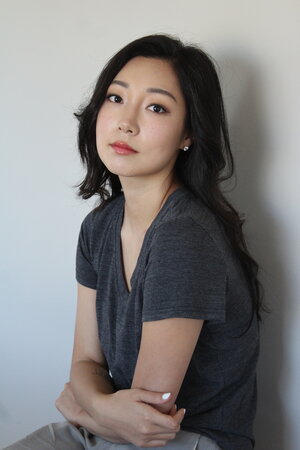Taking Stock
by Jennifer Garfield
We’ve stocked the pantry with tomato sauce,
broth, chickpea pasta for protein. The fridge
casts her blue halo upon crowns of broccoli,
cottage cheese, a dozen lemons. Toilet paper
soldiered in the basement. Clean underwear
tucked into drawers. A stash of black leggings,
toothpaste, baby tylenol. I feel safe knowing
there are 5 bags of coffee in my house. One pair
of reading glasses. Endless scrolling. Each morning
the same morning – day 3, day 12, day 19. Sometimes
a cough. A worried glance. Three broken thermometers.
The email says, Find joy in simple pleasures.
Two children. One husband. What is plenty
when the whole world has said enough?
Writing Prompt:
Make a list of things you have in abundance. These should be literal and measurable. Next, make a short list of things you have that are scarce, precious, irreplaceable. These can be literal or figurative/abstract. Now write a poem where you juxtapose the meaningless excess with the scarce item. Let the contrast reveal something about you. End with a question.
Happy
by E. J. Koh
The sound of a poem—it starts with the footsteps
of an ant over the log we sit on. We hold up steaming mugs
and we commit our anxieties to the air, for these anxieties
to become air, warmer and fresher as they rise away.
The prologue prolongs the holy word—light.
There is light eschewed from our bodies—in all places,
a source of its own, highlighting our features with pale
observable lightness as it does to breasts and breath.
The middle begins with rocks falling off a cliff-face
into the water. This is the argument against time that passes
through our bodies, sinks to the bottom of what used to be,
raging at the seconds, sweeter and staler as they leave us.
Crisis is shaped like an owl pellet we open together,
the tiny bones, beaks, and fur. There is a little tooth, a puff
of feather. The further we peel back the translucent layers,
the more heaven is dimmed by our bright and curious joy.
The solar system is a clock. It turns as we pull
the tulle, leave the linen, divide the diamond, christen
the chrysanthemum, circle the Sound—as we, ourselves,
pull back into solace. We are witnesses of each other.
Afterword, we are unconcealed. Soon there is no
difference between words, and then things. We are beginning.
We are elliptical. You ask me across the aisle of the market,
eating your croquette, “How can you make a poem happy?”
Writing Prompt:
This poem was born out of the question of whether a poem can be happy. It might be delightful to consider what a poem cannot be, then daringly write that poem. The poem was also written before my memoir as I was learning how to write paragraphs that make up chapters that come out as a book. The poem dips into a povel form. How might you write the chapters of a poem? Lastly, time is on my mind. How familiar things can feel at once so young and ancient. What are the things that feel this way to you?

Jennifer Garfield
Jennifer Garfield is a high school English teacher outside Boston. She was recently a finalist for the 2019 Frontier Open, and a Martha’s Vineyard Institute of Creative Writing Parent-Writer Fellow. Her work has appeared or is forthcoming in journals including Salamander and Threepenny Review.

E. J. Koh
E. J. Koh is the author of the memoir The Magical Language of Others (Tin House Books, 2020) and the poetry collection A Lesser Love (Louisiana State University Press, 2017), winner of the Pleiades Press Editors Prize for Poetry. Her poems, translations, and stories have appeared in Academy of American Poets, Boston Review, Los Angeles Review of Books, Slate, and World Literature Today. Koh is the recipient of Prairie Schooner’s Virginia Faulkner Award for Excellence in Writing and fellowships from the American Literary Translators Association, Kundiman, MacDowell Colony, Vermont Studio Center, among others.
